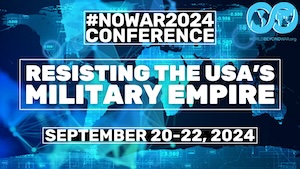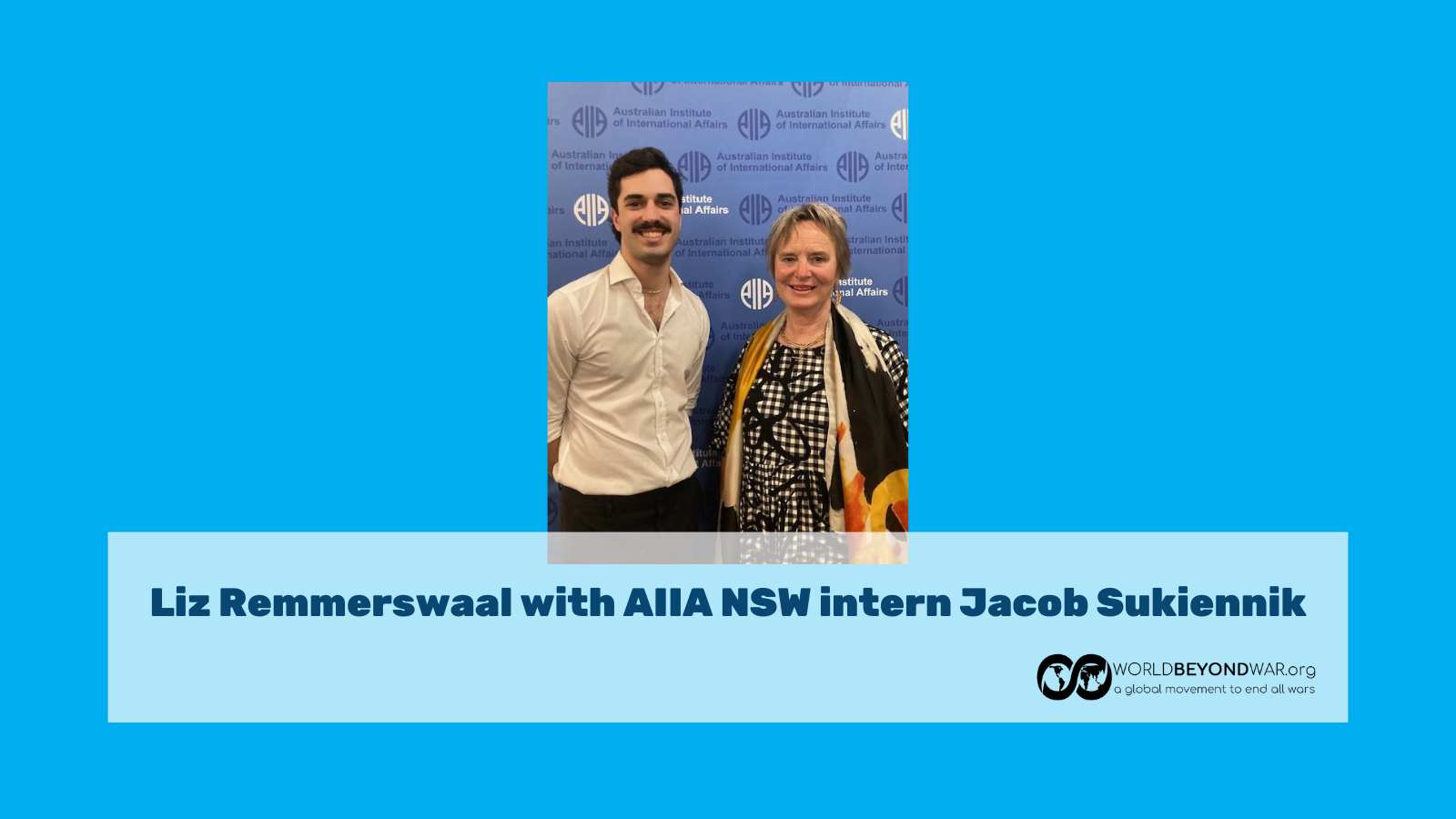By Jacob Sukiennik, AIIA, August 6, 2024
Against the backdrop of growing international conflict, not only is the need for peace growing ever more important, but the very ways we conceive of war may need to be dramatically re-examined. On Tuesday 30 July 2024, the Australian Institute of International Affairs NSW was addressed by Liz Remmerswaal, vice president of World BEYOND War, an international institution aimed at ending war and establishing a just and sustainable peace.
Amid escalating tensions in the Middle East due to the Israel-Hamas war, tumultuous relationships between China, Taiwan and the West, and the ongoing war between Russia and Ukraine, the horrors of armed conflict have become increasingly clear. The ‘long peace’ we had come to enjoy after the end of the Cold War and the fall of the Soviet Union may be ending.
Remmerswaal outlined the history of peacemaking and anti-war advocacy in Australia and New Zealand, beginning with the 1840 Treaty of Waitangi: a seminal document that established partnership and peaceful co-existence between New Zealand settlers and Māori communities. World Beyond War continues to uphold the Treaty’s legacy as the foundational cornerstone of peace-based justice in our region and of peace-building and anti-war activism.
Remmerswaal gave an overview of World Beyond War’s anti-war activities, including protests at the 2015 ANZAC Day centenary, a 2016 gathering at Pine Gap against US surveillance in Australia, and a 2019 petition against the purchase of anti-submarine Poseidon warplanes.
She outlined her organisation’s objective of ending common misconceptions about war. Traditional understandings characterise conflict as a process that can be necessary, justified, or ultimately beneficial; Remmerswaal argued that these notions are reified into policy and military action, creating an expectation that war is inevitable. She called for reframing armed conflict not as dispensing justice, but purely as an exercise of strength and domination.
Remmerswaal suggested that a re-examination of war as a preventable and superfluous phenomenon would promote World Beyond War’s ultimate goal: for war to be taken off the table as a viable option altogether. In its place, Remmerswaal advocated a transition to a global security system underpinned by international law, diplomacy, collaboration and human rights.
In pursuit of this goal, World Beyond War opposes the arms industry and argues that war profiteering is a leading driver of global conflict. Remmerswaal suggested that global military spending, costing over $2 trillion USD annually, would be better spent funding social services like ending hunger and providing free education. In line with her organisation’s goals, Remmerswaal denounced mutual security organisations and treaties such as NATO and AUKUS.
She argued that, like nuclear proliferation, these bodies are inherently war-mongering and destabilising. Remmerswaal endorsed former New Zealand Minister of Disarmament Matt Robson’s contention that “one must be alarmed at how quickly we [New Zealand and Australia] have rushed into the arms of NATO…, sleepwalking towards war”. Echoing the recent words of former New Zealand Prime Minister Helen Clark, Remmerswaal warned against being “seduced into partnership with AUKUS” and making an enemy of China.
Questions from the audience sought clarifications about World Beyond War’s stances on peace and conflict. An audience member challenged Remmerswaal’s implication that peace-driven approaches had never been prioritised over war, and criticised her organisation’s lack of a clear, practical pathway towards a world without conflict. What were the critical political steps the organisation was taking towards its goals?
Remmerswaal responded that World Beyond War aims to raise community consciousness about the need to abjure all war. She underscored the need to divert resources from weapons and the military-industrial complex, and to focus on a bottom-up approach that ordinary people could adopt in promoting peace.
Asked about the impact of the coming US election on peace processes, Remmerswaal said that the similarity of Democrat and Republican military policies provided little hope for steps towards ending global war. She suggested however that Donald Trump’s previous foreign policy – particularly towards Russia and North Korea – indicated a possible willingness to prioritise communication and diplomacy over armed conflict.
In response to an audience question about the agendas of her organisation’s many international chapters, Remmerswaal clarified that the focus of World Beyond War lies in solving local problems, empowering everyday people to strive for peace both at home and worldwide. In her view, a discursive and human-centred approach to changing policy about war has the capacity to end global conflict definitively.










